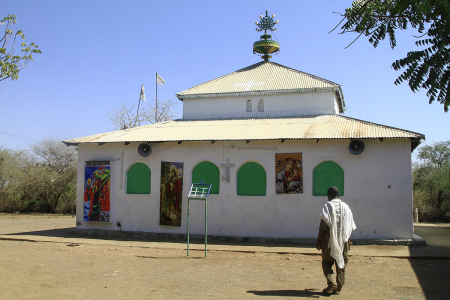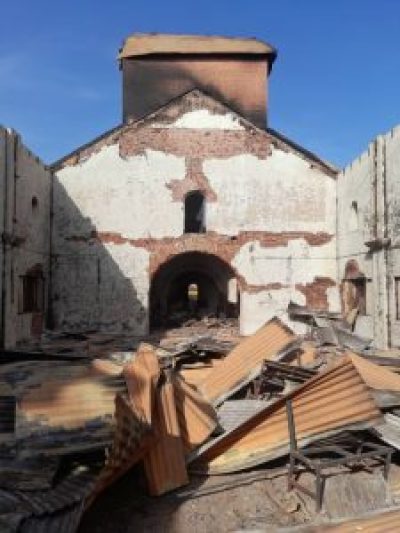US watchdog voices concern as over 150 churches attacked since Sudan war began

Since the war in Sudan began last April, over 150 churches have been damaged or destroyed, according to a report by the United States Commission on International Religious Freedom.
The conflict between the Sudanese Armed Forces and the paramilitary Rapid Support Forces has claimed thousands of lives and devastated religious communities, with U.S. watchdogs warning that religious sites are being targeted, leaving a trail of destruction.
The ongoing conflict has resulted in over 13,000 estimated deaths, with armed combatants targeting houses of worship and other religious sites, according to USCIRF.
In a statement, Commissioner Mohamed Magid said, “International humanitarian law deems houses of worship and religious sites as sacrosanct, even during armed conflict. Despite Article 53 protections, houses of worship and religious sites continue to be impermissibly damaged and destroyed in Sudan.”
The commissioner also raised concerns about attacks on religious leaders and the impact of the conflict on religious minorities.

One significant event occurred in January when RSF militants set an Evangelical church in Wad Madani on fire, according to Morning Star News. The church, built in 1939, was the largest religious structure in Gezira State. The RSF had also attacked a Coptic Christian monastery in Wad Madani, converting it into a military base.
The violence isn’t limited to structures. In May 2023, armed assailants entered a church and shot four people, including a priest and his son, and stabbed the church guard before looting the building. RSF militants also killed Hidar Al Amin, a member of the Sudanese Presbyterian Evangelical Church, during a raid in Omdurman. Al Amin’s relative reported that he was killed after RSF militants looted his property.
In another incident, Evangelical Pastor Kowa Shamal narrowly escaped death after RSF militants ordered him to renounce his faith, La Croix International reported earlier this month. Pastor Shamal refused, resulting in a physical confrontation that ended with his 23-year-old nephew’s murder. The RSF killed the nephew because he refused to remove the cross he wore around his neck.
U.S. Special Envoy for Sudan, Tom Perriello, and USAID Deputy Administrator Isobel Coleman attended the International Humanitarian Conference on Sudan earlier this month, marking the one-year anniversary of the war. Deputy Administrator Coleman announced $100 million in additional humanitarian assistance for the people of Sudan, bringing U.S. government humanitarian assistance to the Sudanese people to over $1 billion since October 2023.
In recent months, there has been a notable increase in the destruction of religious sites during the armed conflict. USCIRF has called for governments and non-state actors to adhere to international law to protect these sites, citing publications on freedom of religion in the Sahel region and international law’s protection of religious sites.
The conflict has deeply affected Sudan’s Christian minority, estimated at about 2 million or 4.5% of the country’s population of more than 43 million.
Open Doors’ 2024 World Watch List ranked Sudan No. 8 among the most challenging places to be a Christian, with religious freedom reforms at the national level not enacted locally. Attacks by non-state actors continued to rise, contributing to this high ranking.
The violence in Sudan has left millions displaced, with civilians bearing the brunt of the power struggle between the SAF and the RSF. As fighting continues, religious minorities fear the situation could worsen even when the conflict ends, raising concerns about future persecution. The ongoing conflict has rekindled fears of the harsh aspects of Islamic law, especially after the military coup in 2021.
The deep state that fueled the Oct. 25, 2021, coup, which led to the conflict, is seen as a threat to religious minorities. The transitional government, established after the ouster of former dictator Omar al-Bashir in 2019, had made strides in reducing religious discrimination, including outlawing apostasy laws. However, the military coup has since reversed these advancements, leaving Sudan’s religious communities in a precarious state.





















